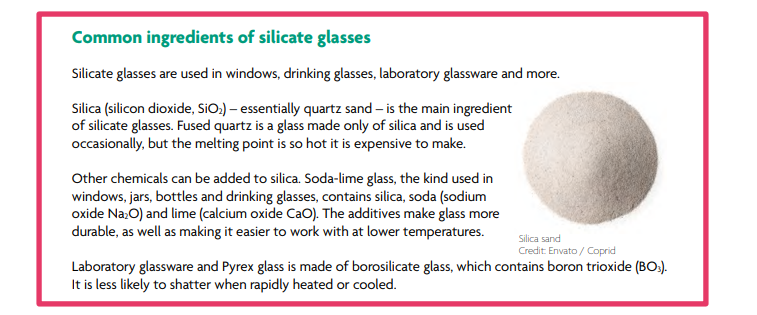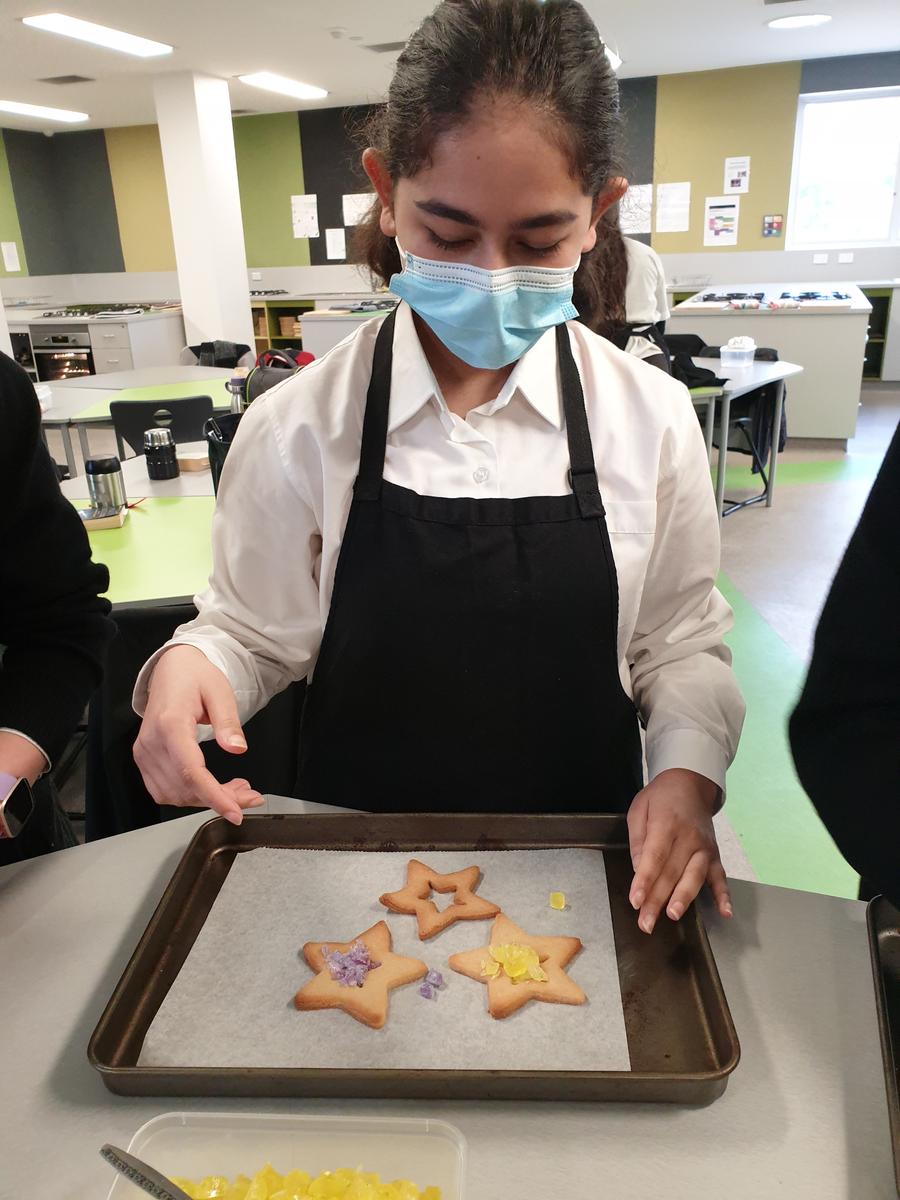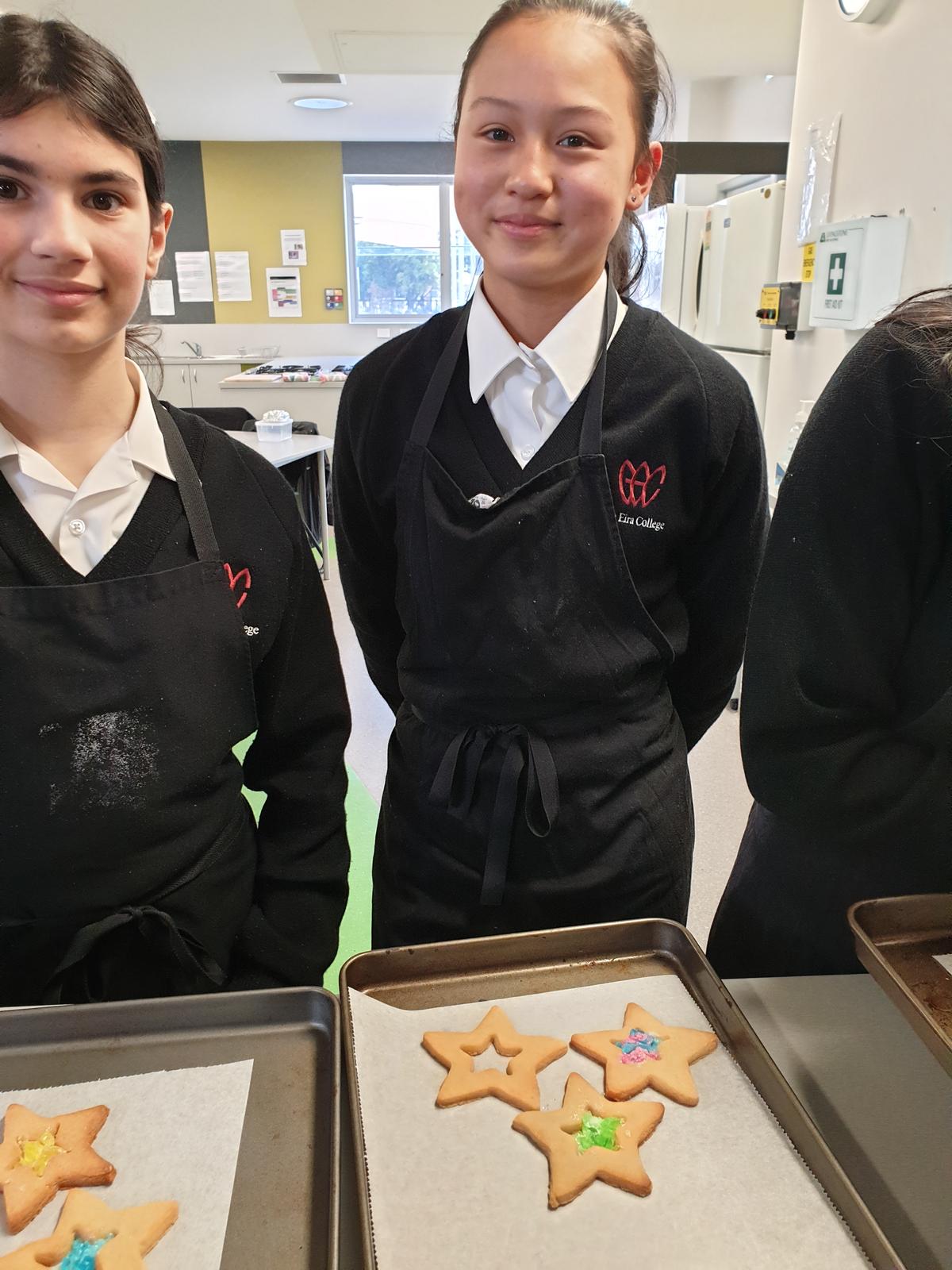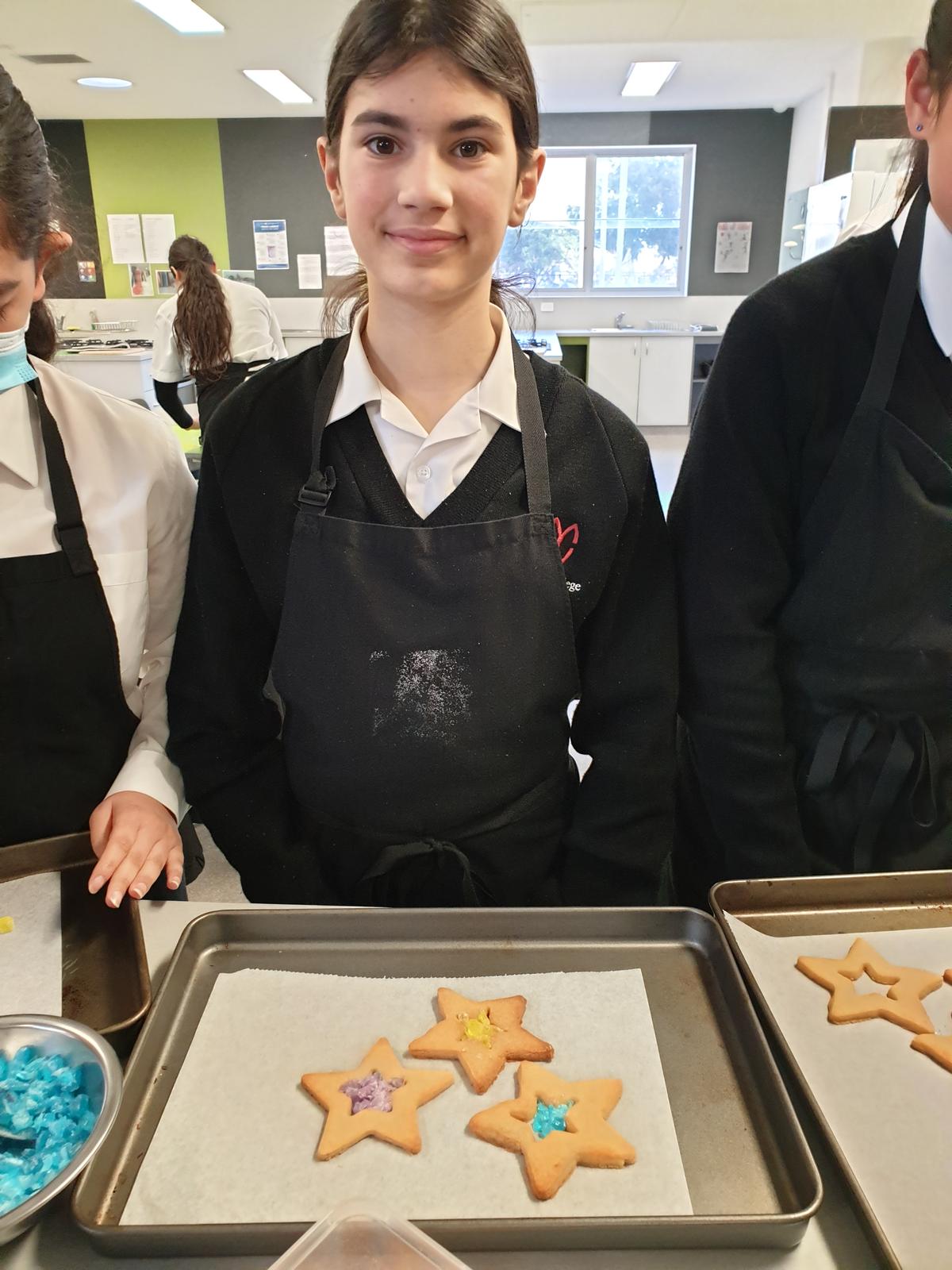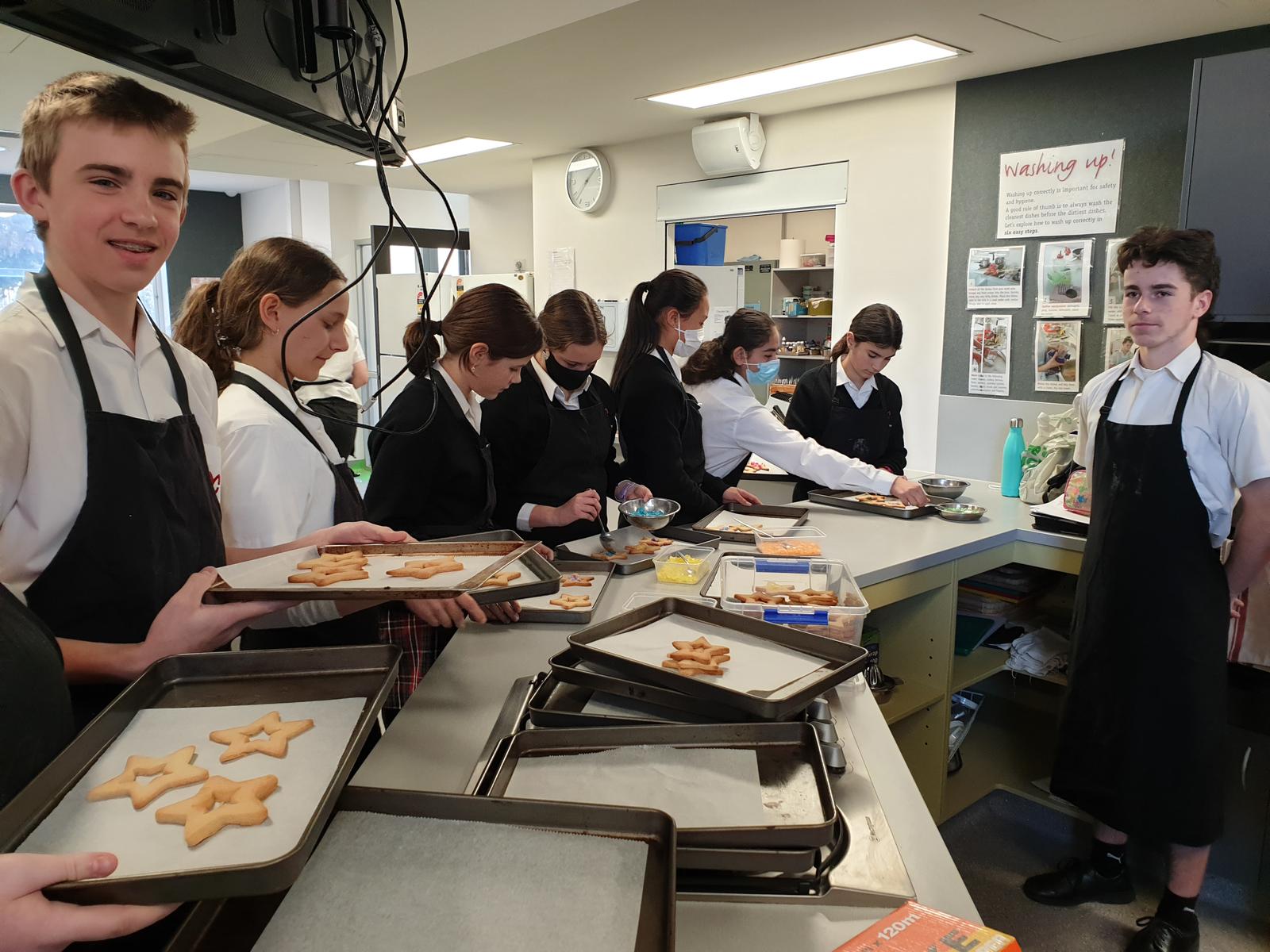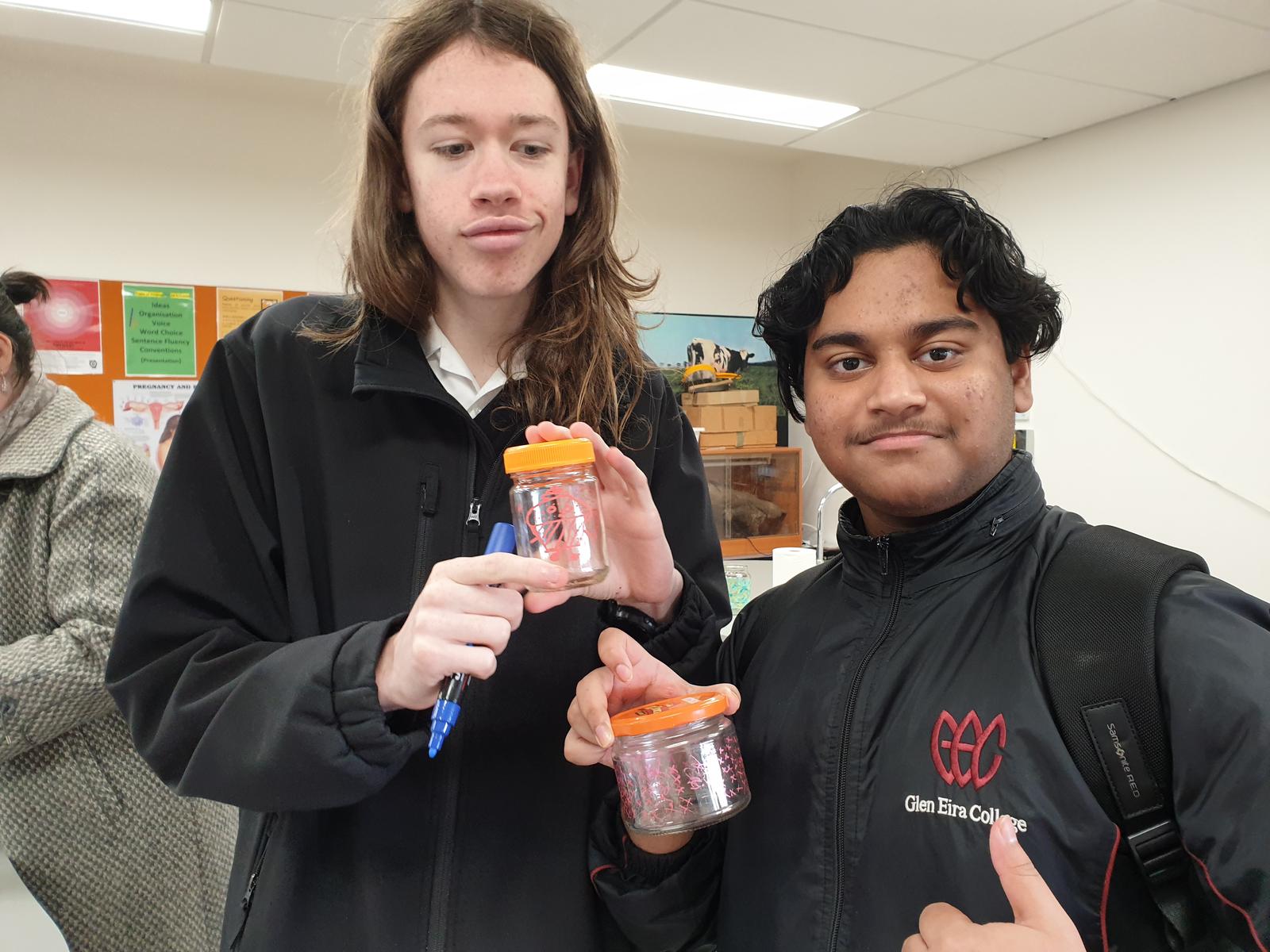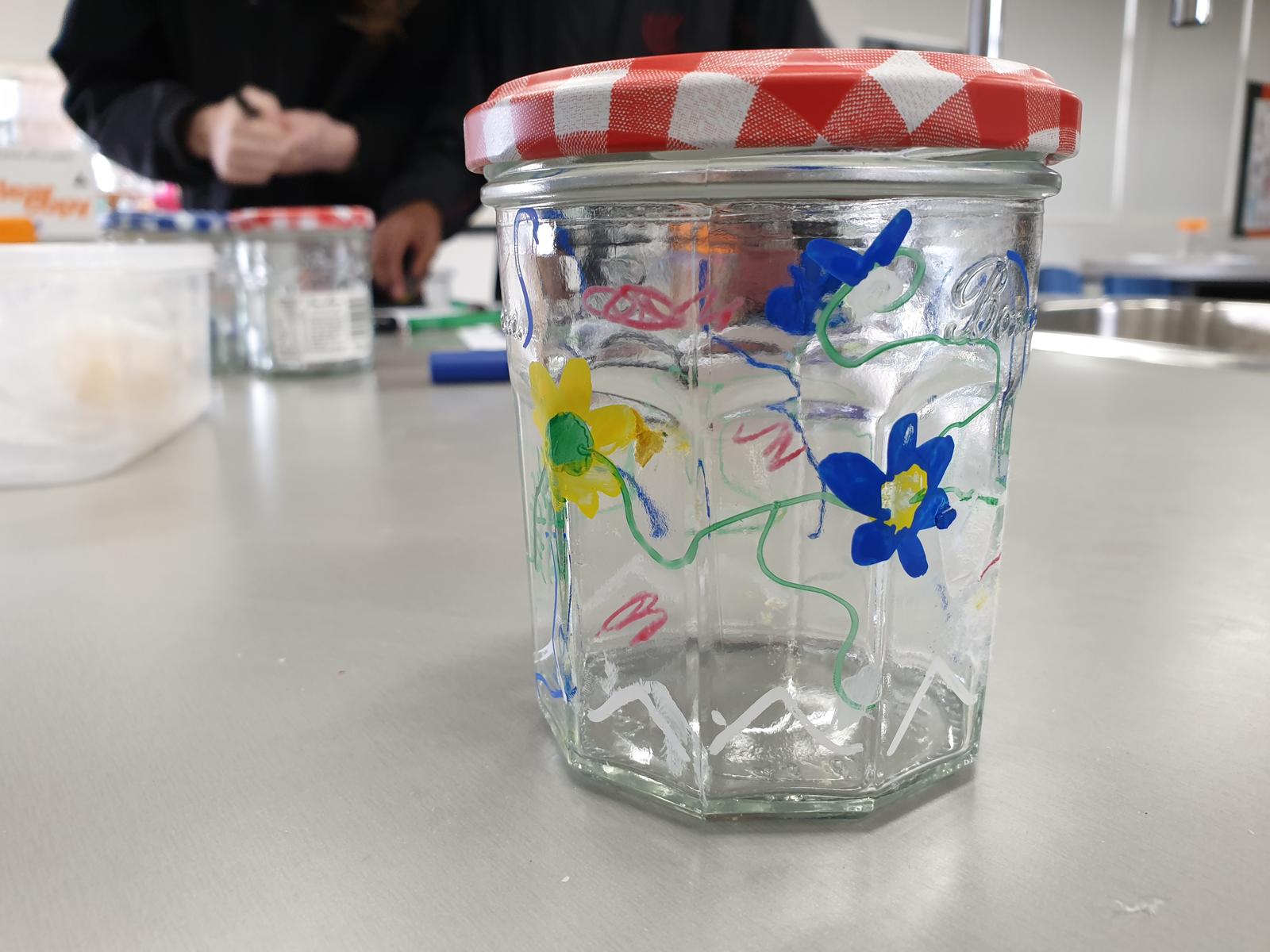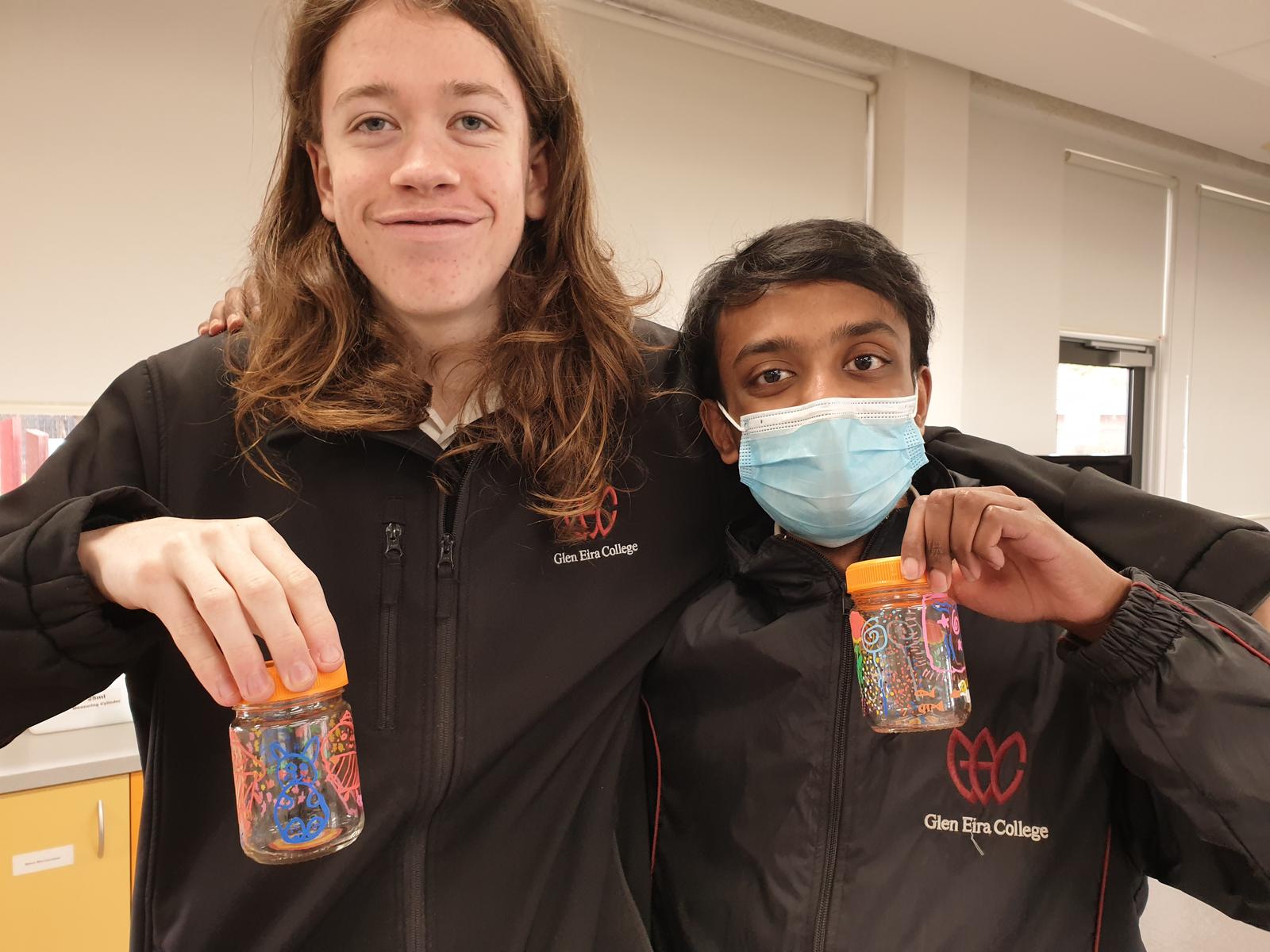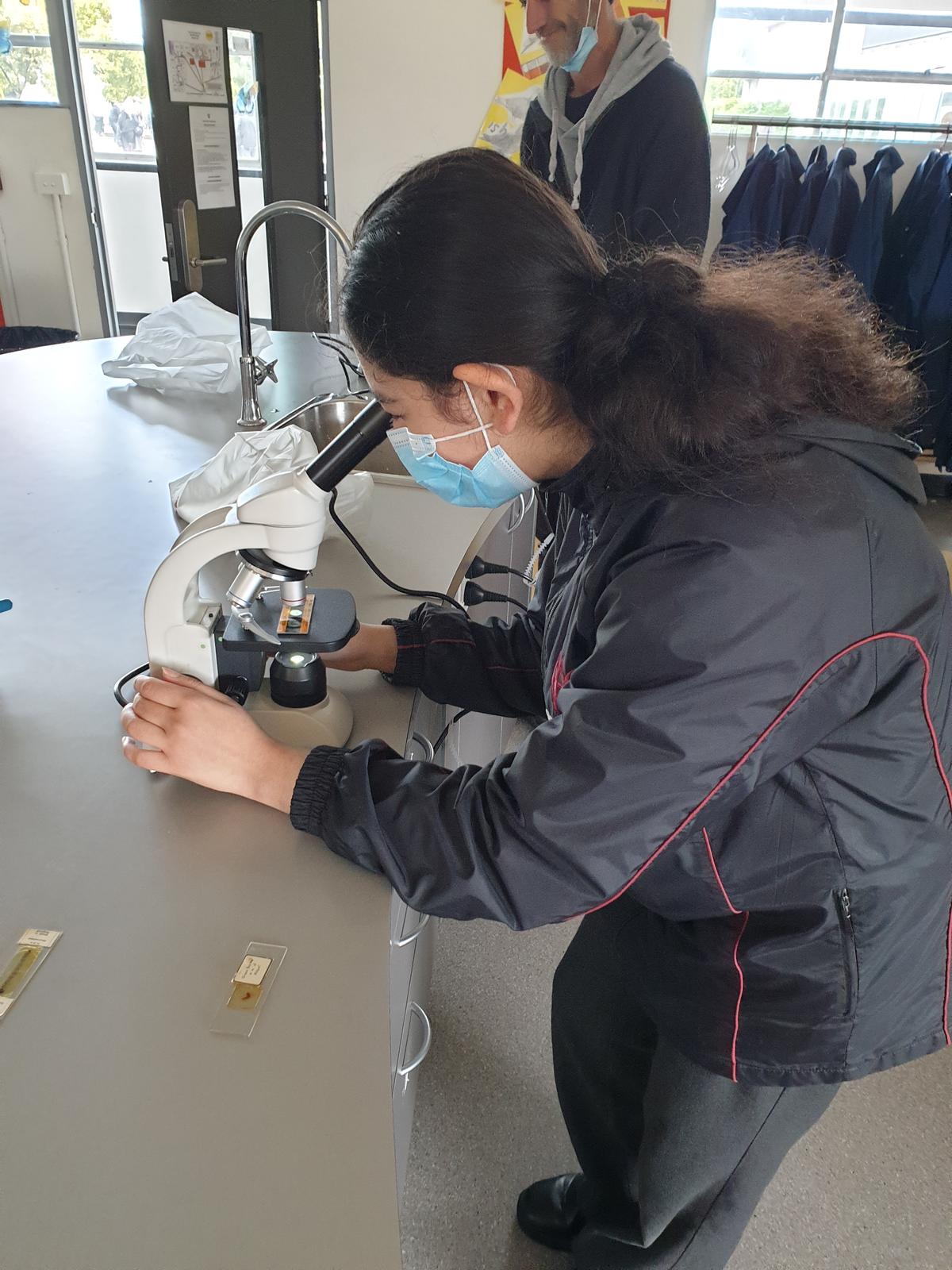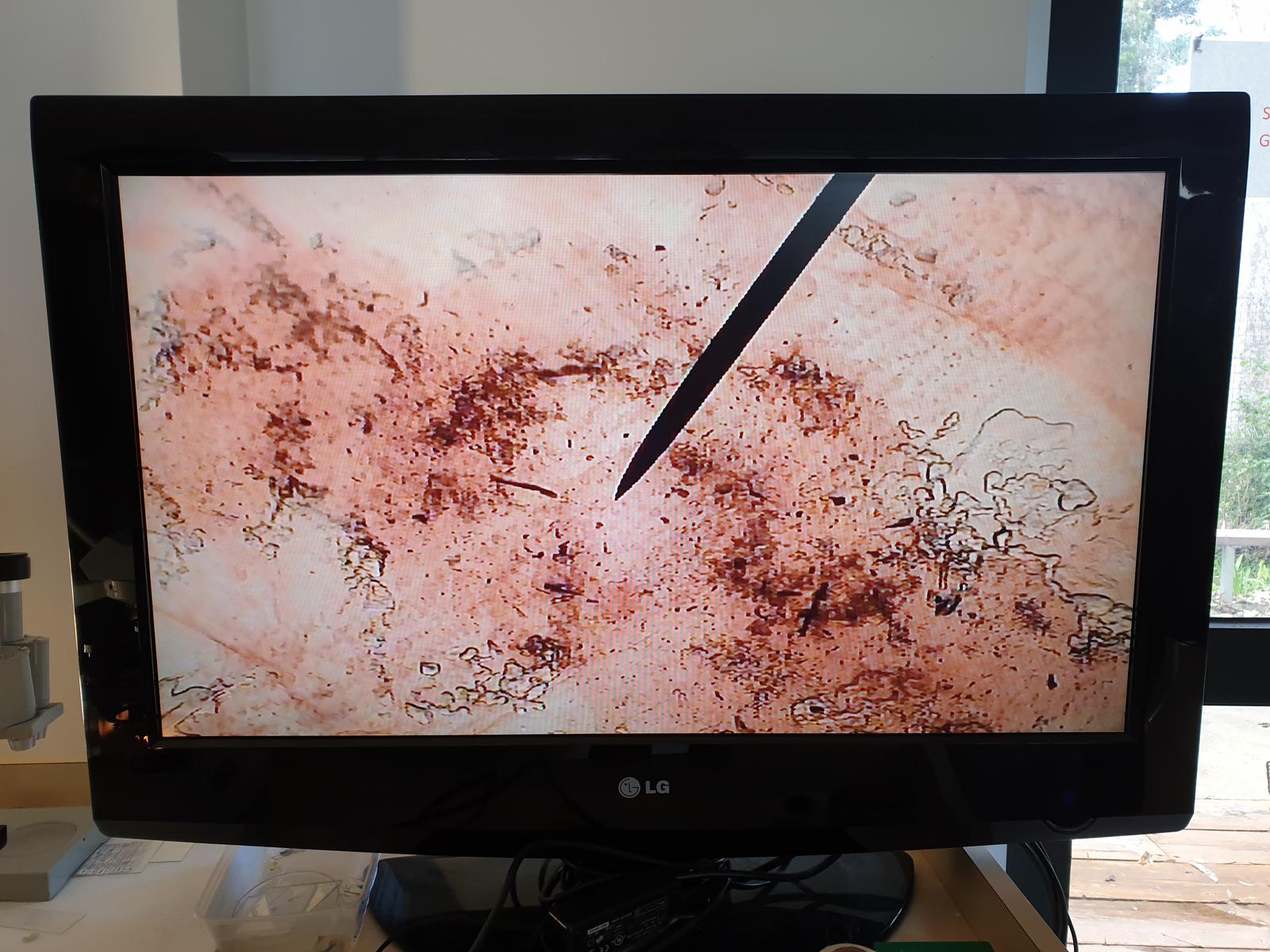Science Week
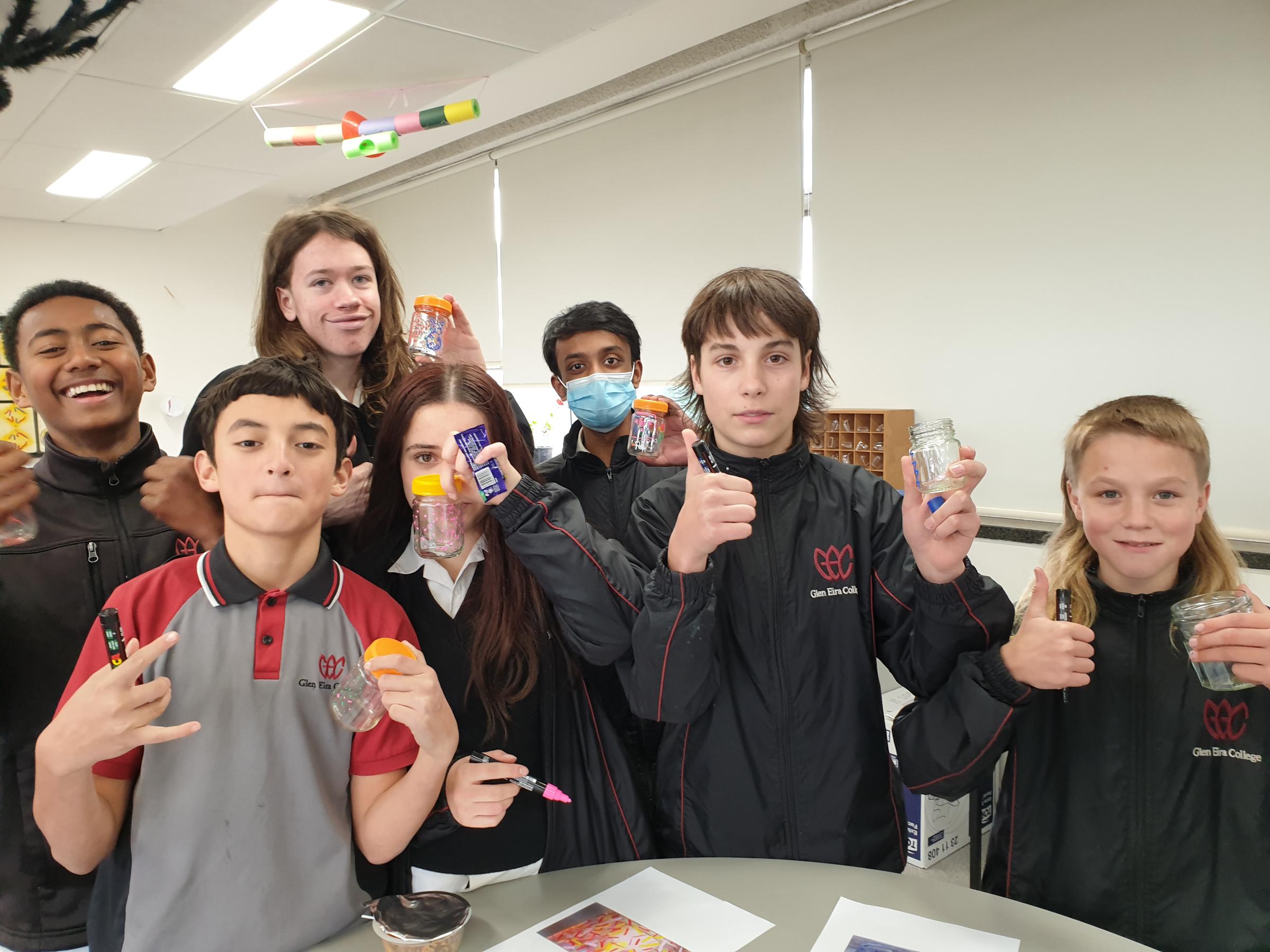
National Science week was run at GEC from Monday 15th August to Friday 19th August 2022. The theme this year was ‘The Year of Glass - to celebrate the heritage and importance of glass’.
Below is an outline of what common ingredients are used to make glass.
To celebrate this theme the following activities were arranged for students:
- Monday 15th August: Decorating and reusing glass jars
- Tuesday 16th August: Exploring microscopes
- Wednesday 17th August: Science trivia
- Thursday 18th August: Build your own kaleidoscope
- Friday 19th August: Making biscuits with stained glass insert (made of lollies)
It was great to see students getting involved in these activities and learning new science facts.
Thank you as well to all the parents who participated in Science week by completing the parent science quiz that was sent out based on ‘The Year of Glass’. The answers to the quiz were:
Question 1:
In general, archaeological evidence suggests that the first true glass was made where?Answer: In coastal north Syria, Mesopotamia or ancient Egypt.
Question 2:
The term glass was developed by what historical empire?
Answer: Roman Empire
Question 3:
In nature, vitrification of quartz occurs when lightning strikes sand, forming hollow, branching rootlike structures called what?
Answer: Fulgurites
Question 4:
Soda-lime glasses account for about what percentage of manufactured glass?
Answer: 90%
Question 5:
From the 10th-century onwards, who were stained glass windows created for?
Answer: Churches and cathedrals
Question 6:
Iron can be incorporated into glass to do what?
Answer: To absorb infrared radiation, for example, in heat-absorbing filters for movie projectors or to add a blue/green tint to glass.
Question 7: Container glass for common bottles and jars is formed by what process?
Answer: Blowing and pressing methods
Congratulations to Shirley Pfleger, parent of Gabe Merl in 7B for answering the science quiz accurately and in the quickest time.
The Science faculty would like to thank everyone for their support and participation in these activities during the week.
Elizabeth Allan
Head of Science

